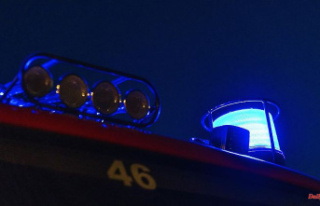In many drawers, savings stockings and safes there are still D-Mark bills and D-Mark coins. They can still be exchanged for euros. In the two branches of the Deutsche Bundesbank in MV alone, more than 450,000 Deutschmarks were exchanged this year.
Hamburg/Rostock/Neubrandenburg (dpa/mv) - Two decades after the introduction of the euro as a cash payment method, hundreds of thousands of Deutschmarks are still being brought to the two branches of the Bundesbank in Rostock and Neubrandenburg in Mecklenburg-Western Pomerania. This year it was up to December 13, 458,000 marks that were changed into around 234,000 euros, as a Bundesbank spokesman in Hamburg told the German Press Agency. The counter clerks counted 1619 transactions. This means that on average around 283 Deutschmarks were exchanged for euros.
The money does not only have to come from residents of Mecklenburg-Western Pomerania, but can be paid in by people from all regions and countries. According to the Bundesbank, the Deutsche Mark was unofficially a second currency in some Balkan countries in the 1990s. It is therefore quite possible that relatives of the deceased there exchange found or inherited cash in Germany.
In Hamburg, Schleswig-Holstein and Mecklenburg-Western Pomerania together, almost 3.05 million Deutschmarks (1.56 million euros) had been exchanged by mid-December. In the previous year it was around 2.98 million Deutschmarks. Nationwide, more than 49 million Deutschmarks were exchanged this year.
Almost 21 years after the introduction of euro cash, D-Mark bills and coins worth billions have not yet been returned. According to information from the Federal Bank, the total value still outstanding at the end of November was just under 12.3 billion marks (about 6.29 billion euros). Experts suspect that part of it may be in coin collections.
Germany is one of six countries in the euro area that exchange both national banknotes and national coins indefinitely. Old bills and coins can be exchanged at all 31 branches of the Deutsche Bundesbank or by post via the Mainz branch. The exchange rate is unchanged: you get one euro for 1.95583 German marks. The euro was introduced on January 1, 2002 as a means of payment in cash.












